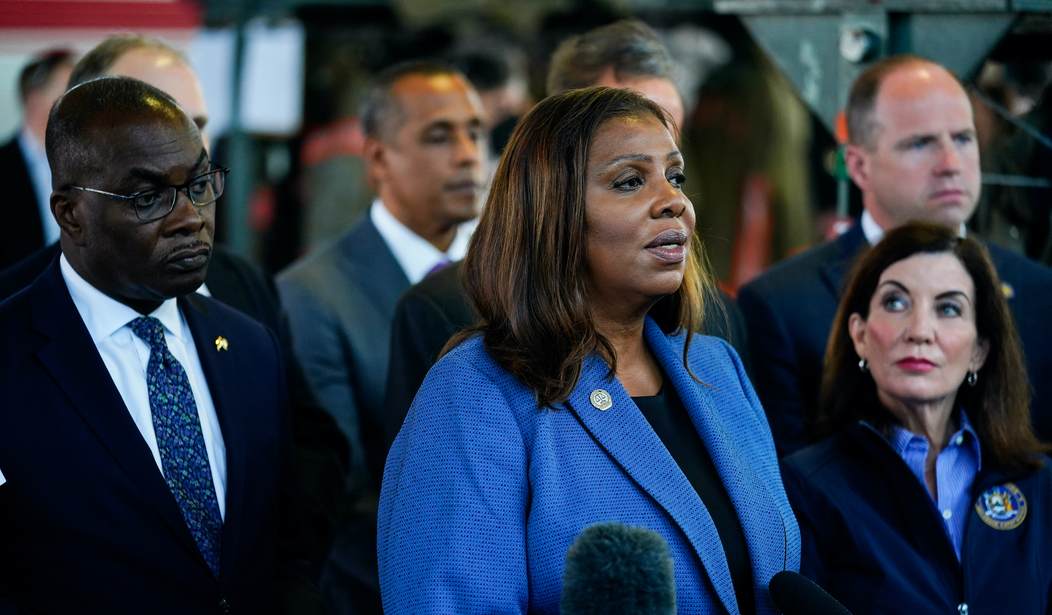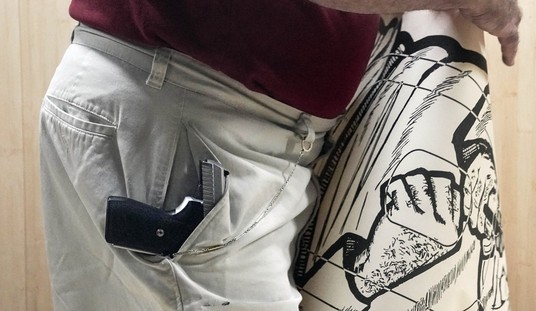Anti-gun politicians in New York and Baltimore launched a new attack on home-built firearms on Wednesday, with New York Attorney General Letitia James accusing more than two dozen firearms retailers in the state of illegally selling or marketing unserialized firearms and Baltimore Mayor Brandon Scott announcing that the city has joined forces with a major gun control group in suing a manufacturer of unfinished frames and receivers that consumers can use to build their own firearms at home.
James sent a cease-and-desist letter to 28 gun shops across the state of New York warning them that they’re violating state law regarding unserialized firearms and demanding they end the sale of 80% frames and receivers lest they face criminal prosecution.
A pair of bills signed into law last year prohibits the sale and possession of ghost guns.The Scott J. Beigel Unfinished Receiver Act — named after a former Dix Hills resident and teacher who saved dozens of lives, but lost his own, in a 2018 mass school shooting in Parkland, Fla. — prohibits the possession and sale of the frames or receivers by anyone other than a licensed gunsmith or firearms dealer.State Sen. Anna M. Kaplan (D-North Hills), the bill’s lead sponsor, said “too many people were exploiting a loophole in our gun laws and getting their hands on dangerous, untraceable ghost guns without ever going through a background check.”A second measure requires New York gunsmiths to serialize and register any firearms they manufacture or assemble, including those made from unfinished parts.
The lawsuit, similar to ones filed by the District and Los Angeles, does not spell out how much the city is seeking in punitive and compensatory damages. City Solicitor James L. Shea said the amount would be “very substantial” and that officials are still working on an estimate. Shea said the amount will encapsulate the “societal problems that are created, down to cleaning up the mess that Polymer80 created here in the city.”
One media member asked the mayor, “Do you think your administration can have a summer of peace given what we’ve seen this year?”“I think that’s a ridiculous question,” Mayor Scott said. “I think that your station, in particular, has to understand this is not hashtag. We are going to work every day to make sure that does not happen wherever we can prevent it.“We ultimately have to understand personal responsibility. Where’s the personal responsibility? When are we also going to call on people to check on what’s going on with their young people, to make sure they know what their young people are into?
“When are we going to have a conversation how everybody, including your station, can play apart in reducing violence, instead of spreading this hate, spreading this violence, spreading the hashtags, spreading this nonsense.”
The “Summer of Peace” was organized as a way to speak up against crime and violence in the city.
“We know what the mission is,” Mayor Scott said. “The mission is to save lives in Baltimore, and particularly to save the lives of our young people.”
City officials said ghost guns, which are sold in parts and can be assembled at home, make up 19 percent of all the guns recovered so far this year by Baltimore police and that 91 percent of those seized ghost guns were manufactured by Polymer80. No ghost guns were recovered in 2018; three years later, the police department seized 352 ghost guns. In the first five months of 2022, there have been 187 recovered, authorities said, which outpaces last year’s rate.
According to the lawsuit, Baltimore police linked 32 of the 352 ghost guns recovered last year to a homicide or shooting. Dante Barkdale, an outreach worker with the Safe Streets Baltimore program and one of the more than 300 victims of gun violence last year, was shot nine times with an unserialized Polymer80 handgun, the lawsuit reads. Teens as young as 14 have been arrested for possession. Nearly a quarter of recovered ghost guns have been in the possession of individuals younger than 21, the legal age to possess a firearm in Maryland.
Baltimore had 344 homicides in 2015, long before “ghost guns” started showing up. Last year the city recorded 337 homicides, and the number of murders in the city have actually dipped slightly since 2019, when 348 murders were recorded. In other words, there’s no evidence that home-built firearms or unfinished frames and receivers are fueling an increase in violence or homicides, since murders have actually declined (even slightly) while the number of unserialized firearms recovered by police have increased.
Criminals are going to get ahold of guns no matter what gun control laws are in place, as Baltimore has been demonstrating for decades now. But when politicians like Scott need a handy scapegoat, they’re quick to turn on law-abiding gun owners and the firearms industry in order to deflect criticism and attention away from their own failing public safety strategies centered around criminalizing our right to armed self-defense.









